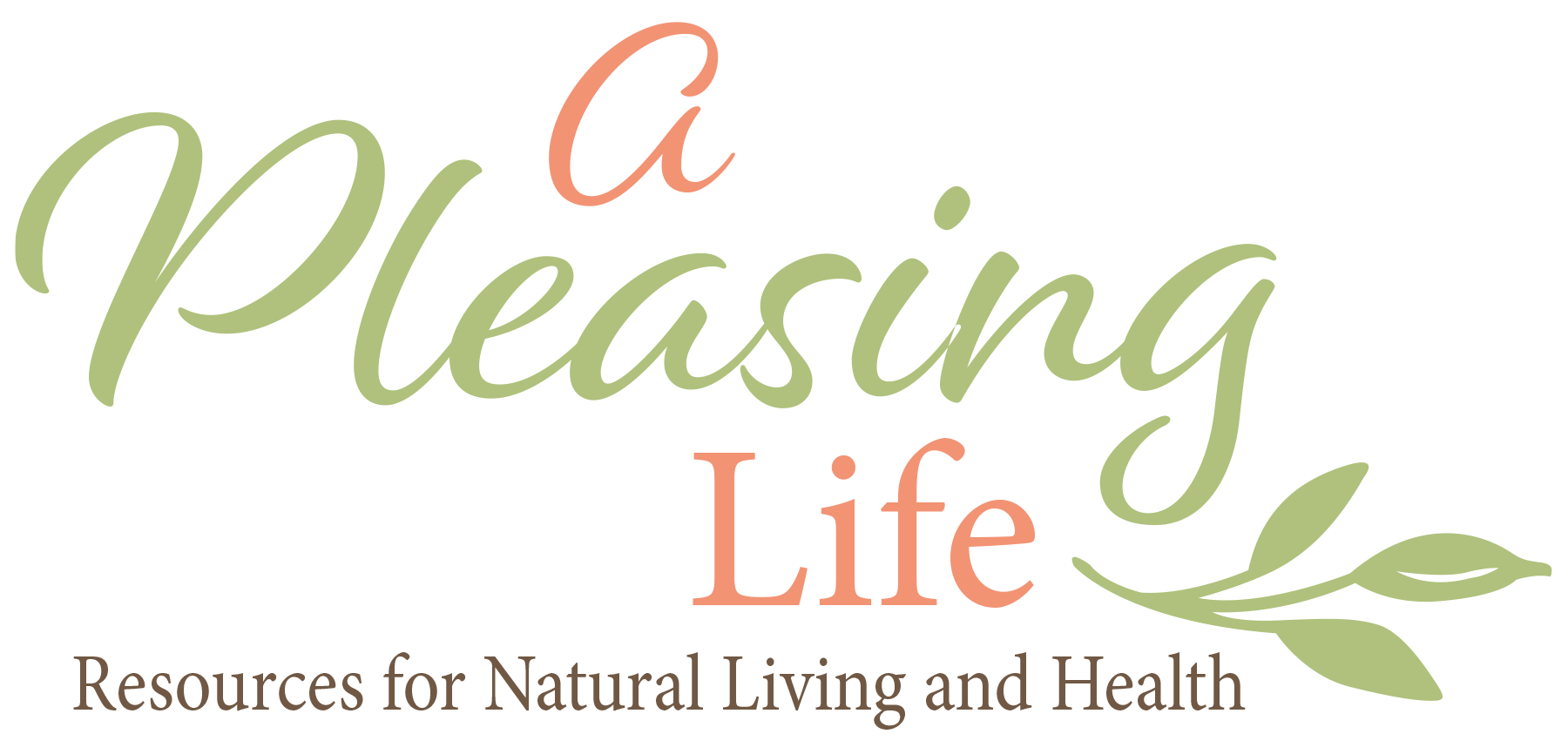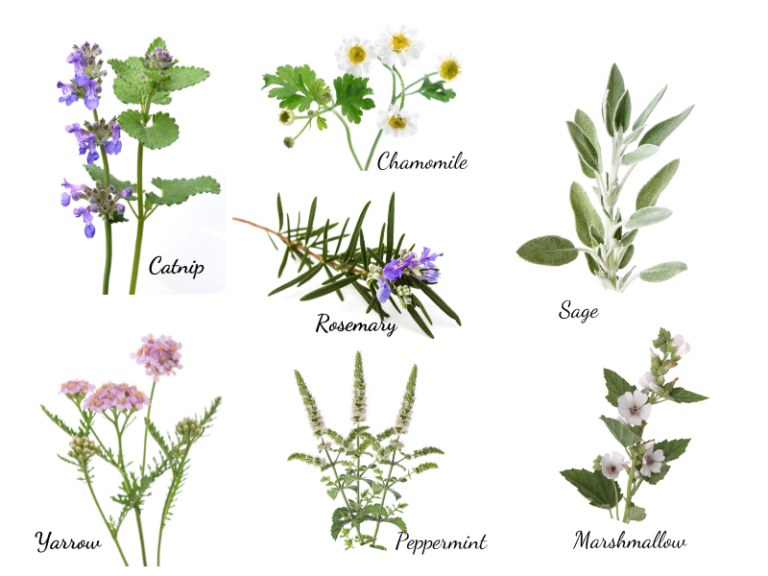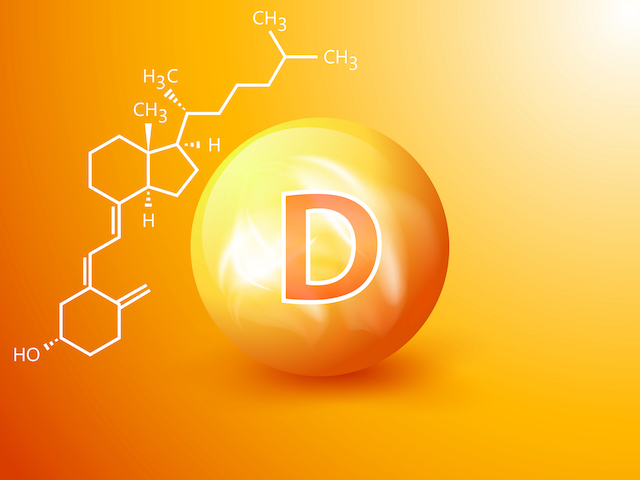Plant-Based Milk Benefits & Concerns
What Women Need to Know About Ingredients, Nutrition & Health Concerns
- Why Plant-Based?
- Plant-Based Milk Benefits
- Beneficial Plant Compounds in Vegan Milks
- Plant-Based Milk Benefits & Concerns
- Potential Health Concerns:
- The Shifting Perspective on Soy Consumption
- Are There Any Good Options In The Store?
- If you want to avoid the chemicals in your "milk"—
- References & Resources For More Information:
Why Plant-Based?
Plant-based diets have moved from niche to mainstream in recent years. Even women who are not necessarily vegan or plant-based in diet preference are choosing plant milks. There are many good reasons to be using non-dairy alternatives for milk.
I was dairy free for a couple of years because the dairy protein caused a slew of symptoms including joint pain and fatigue. I had been off anything with lactose for many years due to stomach upset, but then worse symptoms started to develop. Once I realized dairy was an issue I gave up even my beloved hard cheese and kefir.
If you have been following me, you know I’m a big proponent of organic, raw, A2A2 cow’s milk or the equivalent in goat’s milk. But what if you can’t or don’t wan’t to consume either of those? What if a plant-based milk alternative is the best thing for your health?
‘Read on for plant-based milk benefits and concerns.

TAKE BACK YOUR VITALITY!
Learn more about the health benefits of gardening and get some good tips and instruction too.
In this post, I’ll walk you through the world of plant-based milks—their nutritional benefits, potential concerns with certain ingredients, and how to choose the best options for your unique health needs. I’ve done the research and want to share what I’ve learned to help you make choices that truly support your wellbeing.
First, please know that I am not against plant-based milk. There are many benefits including phytonutrients. I also have some significant concerns about any ultra-processed food. Good milk alternatives are hard to find and, I think, expensive. There are both plant-based milk benefits and concerns. In case you just want to know what choice I made — homemade cashew milk. The recipe is at the end of this post. But, if you want to know what to look for keep reading. There are some good options and some middle-of-the-road options as well.
And here is a recipe for cashew milk.

Plant-Based Milk Benefits
Dairy Intolerance Solution
- Provides a viable alternative for those with lactose intolerance or dairy allergies
- Allows people to enjoy milk-like beverages without digestive discomfort or allergic reactions
Nutritional Advantages
- Many plant milks are fortified with vitamins D and B12, calcium, and other nutrients
- Some varieties (like soy) provide complete proteins ( but check the label most are very low)
- Generally lower in saturated fat than whole dairy milk
- Often contain beneficial plant compounds not found in dairy
Health-Specific Benefits
- Almond milk is low in calories for weight management
- Soy milk contains isoflavones which may benefit heart health and menopause symptoms – A standard 8-ounce (240ml) serving of soy milk generally contains between 20-30mg of isoflavones, with some brands containing up to 40mg. Studies showing health benefits often use daily doses of 40-100mg of isoflavones, meaning that 1-3 servings of soy milk could potentially provide clinically relevant amounts.
- Oat milk contains beta-glucans that can help lower cholesterol – you need about 3 grams of beta-glucans to make a difference. A bowl of oatmeal will provide that, but you might need up to 7 servings of oat milk.
- Hemp milk provides omega-3 fatty acids for brain and heart health
Dietary Flexibility
- Supports various dietary preferences including vegan, plant-based, and flexitarian approaches
- Provides options for those reducing animal product consumption for ethical reasons
Versatility
- Works well in cooking, baking, coffee, cereal, smoothies and other culinary applications – most of the time anyway.
- Available in various flavors and formulations to suit different tastes and needs. This is especially useful for people who prefer the flavor of plant milk.
Beneficial Plant Compounds in Vegan Milks
Different vegan milks contain unique beneficial plant compounds that aren’t found in dairy milk:
I’m going to start with what is probably the most controversial one — soy. Fifty years ago health experts were urging us to eat more soy. Studies proved Asian diets, high in soy, were healthy. Currently, soy is pretty controversial as far as health is concerned. I’ll address concerns further down.
Please realize the plant-based milk benefits listed here are benefits of the actual plant. Actual benefit depends on how much water is added to the product. (many plant milks are mostly water and thickeners)
Soy Milk
- Isoflavones (genistein and daidzein): May help reduce menopausal symptoms, support bone health, and potentially lower heart disease risk. As I wrote above : A standard 8-ounce (240ml) serving of soy milk generally contains between 20-30mg of isoflavones, with some brands containing up to 40mg. Studies showing health benefits often use daily doses of 40-100mg of isoflavones, meaning that 1-3 servings of soy milk could potentially provide clinically relevant amounts.
- Saponins: Have antioxidant properties and may help lower cholesterol
- Phytosterols: Plant compounds that can block cholesterol absorption
Almond Milk
- Vitamin E: A powerful antioxidant that supports skin health and immune function
- Polyphenols: Plant compounds with anti-inflammatory and antioxidant effects
- Magnesium: Important for muscle and nerve function, often lacking in many diets
Oat Milk
- Beta-glucans: Soluble fiber that helps lower cholesterol and improves heart health
- Avenanthramides: Unique antioxidants found only in oats that have anti-inflammatory effects. Note: Commercial oat milk typically contains only trace amounts of avenanthramides, significantly less than whole oats or oatmeal.
- Phenolic compounds: Antioxidants that help reduce oxidative stress
Hemp Milk
- Cannabinoids (non-psychoactive): May have anti-inflammatory properties
- Essential fatty acids: Perfect ratio of omega-3 to omega-6 fatty acids
- Gamma-linolenic acid (GLA): Beneficial for hormone balance and skin health
Flax Milk
- Lignans: Phytoestrogens that may help balance hormones and reduce cancer risk
- Alpha-linolenic acid (ALA): Plant-based omega-3 fatty acid beneficial for heart health
Coconut Milk
- Medium-chain triglycerides (MCTs): More easily metabolized fats that can provide quick energy
- Lauric acid: Has antimicrobial and antifungal properties
Rice Milk
- Phytosterols: Plant compounds that block cholesterol absorption
- Phenolic compounds: Antioxidants that help protect cells from damage
Pea Milk
- Leucine: An amino acid important for muscle synthesis
- Lutein: A carotenoid important for eye health
These plant compounds offer health benefits beyond basic nutrition and represent advantages that dairy milk simply cannot provide due to its animal origin. This is why I strongly encourage my patients to eat a wide variety of plants along with meat and dairy as tolerated.
Plant-Based Milk Benefits & Concerns
Potentially Problematic Ingredients in Vegan Milks
Carrageenan
- Potential inflammatory effects in the digestive system
- Associated with intestinal inflammation in some studies
- May disrupt gut microbiome balance
- Some research links it to increased intestinal permeability (“leaky gut”)
- FDA approved but banned in infant formula and controversial
Other Stabilizers & Thickeners
- Gellan gum: May disrupt gut microbiome in sensitive individuals
- Locust bean gum: Can cause digestive distress in some people
- Xanthan gum: Potential allergen and digestive irritant
- Modified food starch: Highly processed ingredient
Preservatives
- Potassium sorbate: Potential allergen and migraine trigger
- Sodium benzoate: When combined with vitamin C, can form benzene (carcinogen)
- Citric acid: Often derived from mold — not citrus — can be an allergen for sensitive individuals
Dipotassium Phosphate
Dipotassium phosphate is also a preservative. Unfortunately, it’s used in even some of the best plant milks. Here are some reasons it might be in your “milk”:
- Dipotassium phosphate (K₂HPO₄) is a salt of potassium and phosphate that serves multiple functions in plant-based milks:
- Acts as a buffer to maintain pH stability
- Helps prevent protein separation and curdling, especially in coffee
- Serves as an emulsifier to create a smooth texture
- Functions as a source of potassium and phosphorus
Potential Health Concerns:
Manufacturing Process:
- Created through an industrial chemical process by reacting phosphoric acid with potassium hydroxide
- Undergoes multiple refining steps including neutralization, crystallization, and drying
- Far removed from anything found naturally in whole foods
- Synthesized in laboratory or industrial settings, not derived directly from food sources
- It’s presence often indicates the manufacturer is willing to cut corners in other areas
Personal Health Considerations:
- Phosphate Imbalance:
- High dietary phosphate intake can disrupt calcium-phosphorus balance
- May contribute to decreased calcium absorption
- Potential concern for those with impaired kidney function
- Digestive Irritation: Some people report digestive discomfort, particularly those with sensitive systems
- May interact with absorption of other minerals like zinc, iron, and magnesium
- Could contribute to mineral imbalances with regular consumption
Flavor Enhancers
- MSG derivatives (often hidden in “natural flavors”)
- Yeast extract: Contains naturally occurring glutamates
Seed Oils (Canola, Sunflower, Safflower)
- High in omega-6 fatty acids which can promote inflammation when consumed in excess
- Often highly processed and refined
- May contain residual chemical solvents from extraction process
- Prone to oxidation, potentially creating harmful compounds
- Often from GMO crops (especially canola and soybean oils)
Added Sugars
- Contributes to inflammation and metabolic issues
- Promotes unhealthy gut bacteria
- May affect blood sugar regulation even in small amounts
- Often hidden under various names (organic cane sugar, cane juice, etc.)
- Unnecessary additional calories with no nutritional benefit
Emulsifiers (Lecithin, Gellan Gum, Xanthan Gum)
- May negatively impact gut barrier function
- Can alter gut microbiome composition
- Potential to promote low-grade inflammation
- Some people experience digestive discomfort (gas, bloating)
- May affect nutrient absorption
“Natural” Flavors
- Umbrella term that can hide dozens of undisclosed chemicals
- May contain MSG derivatives as flavor enhancers
- Can include preservatives and solvents
- Potential allergens not required to be specified on label
- No requirement to disclose animal-derived ingredients in “natural flavors”
- May contain propylene glycol and other carrier agents
- These additives are particularly concerning because they’re often found in products marketed as “health foods,” despite potential negative health impacts, especially with regular consumption.
Unsweetened Is Best For Plant-Based Milk Benefits
Our taste buds adapt quickly – most people find they enjoy the natural flavors of plant milks after a brief adjustment period. Also, unsweetened versions let you control the sweetness level when needed (adding your own maple syrup or honey if desired). Avoiding sweeteners helps maintain stable blood sugar levels throughout the day. This includes using the non-nutritve sweeteners like modified stevia. And many recipes calling for plant milk (like savory dishes) work better with unsweetened versions
Concerns With Non-Nutritive Sweeteners:
- Modified stevia (not the whole leaf) undergoes significant processing with chemicals
- Emerging research suggests potential disruption of gut microbiome with regular consumption
- Some evidence points to hormone disruption and potential thyroid effects
- Many women report experiencing bloating and digestive discomfort
- Can perpetuate cravings for sweet foods rather than helping to reduce them
The Shifting Perspective on Soy Consumption
The dramatic shift in soy’s reputation from health food to controversial ingredient represents an interesting case study in how nutritional science evolves:
Why the Change in Perspective:
1970s-1980s Pro-Soy Factors:
With emerging environmental consciousness, soy was positioned as an economical, sustainable protein source. The Framingham Study showing links to cholesterol and heart disease made low cholesterol soy an obvious choice for heath. We now are beginning to understand the relationship of inflammation in the heart disease model — but that wasn’t considered then.
Current Soy Concerns:
We have a better understanding of phytoestrogens and their complex interactions in our bodies. And we have better recognition of differences between traditional Asian soy consumption (primarily fermented, moderate amounts) versus Western consumption (processed, isolated components). There is a greater awareness of individual variation in processing isoflavones. And we now know there can be significant impact on thyroid hormones as well as estrogen.
The relationship of soy as a cause of cancer is complicated. There may be a link to breast and thyroid cancers. Most current research suggests moderate soy consumption is likely safe and may even be protective against breast cancer for most women. But not everyone agrees on this. The real issue appears to be with the processing. Ancestral foods prepared naturally and without preservatives appear to be protective.
Are There Any Good Options In The Store?
The answer is Yes!
Please, please, read the label. I have watch so many people be shocked when they actually turn that carton around and read the long list of ingredients. Here are some reasonable options:
- Elmhurst 1925 produces some of the cleanest plant milks on the market. Their “Milked” line (almonds, cashews, oats, etc.) typically contains just the base ingredient, filtered water, and perhaps a small amount of salt or natural flavor. Their unique “HydroRelease” method allows them to avoid gums, carrageenan, oils, and phosphates.
- Three Trees offers almond and pistachio milks with extremely simple ingredients – just nuts, water, and sometimes a touch of salt. No oils, gums, or additives.
- Malk Organics produces plant milks with very clean ingredient lists, using primarily organic nuts or oats, filtered water, and minimal additions like salt and sometimes maple syrup.
- PLENISH (available in the UK) creates cold-pressed nut milks with minimal ingredients.
If you want to avoid the chemicals in your “milk”—
Making your own plant-based milk is pretty easy. There are many options and recipes. I settled on cashew milk. I didn’t have to bother strain it out and it came out super thick and creamy. I made it extra thick – think sour cream consistency – so I could use it as cheese sauce, sour cream or whatever. Then, by thinning some out, I would also have milk. Be aware it only lasts a few days in the refrigerator. It’s Whole30 diet compliant and way better than any of the store options I tried.
Check out this easy recipe for cashew milk here.
References & Resources For More Information:
- Harvard T.H. Chan School of Public Health – “The Nutrition Source: Plant-based Milk Alternatives” https://www.hsph.harvard.edu/nutritionsource/milk/milk-alternatives/ (Offers evidence-based information on various plant milks and their nutritional profiles)
- The Journal of Food Science and Technology – “How well do plant based alternatives fare nutritionally compared to cow’s milk?” https://www.ncbi.nlm.nih.gov/pmc/articles/PMC5756203/ (Peer-reviewed scientific comparison of nutritional profiles)
- Dr. Mark Hyman, MD – “Food: What the Heck Should I Eat?” (Book that discusses controversial ingredients including emulsifiers, carrageenan, and seed oils)
- The Environmental Working Group (EWG) – “Decoding the Label: Plant-based Milk Alternatives” https://www.ewg.org/ (Provides information on additives and processing methods)
- American Journal of Clinical Nutrition – “Health effects of natural food components with estrogenic properties: soybean isoflavones” https://academic.oup.com/ajcn (Peer-reviewed research on soy’s hormonal effects)






One Comment